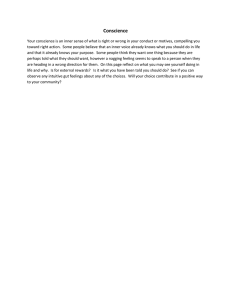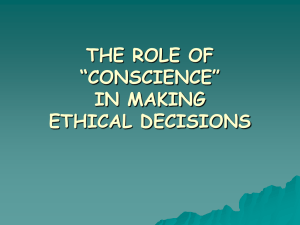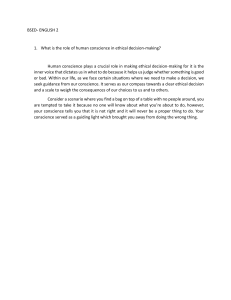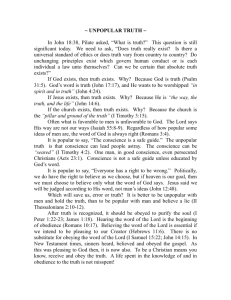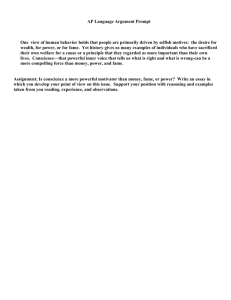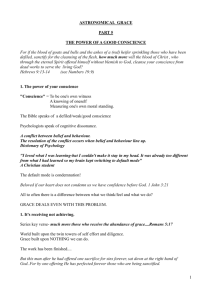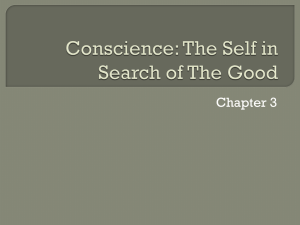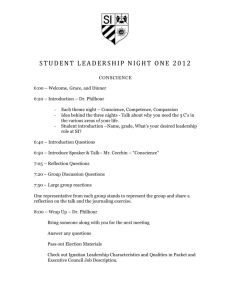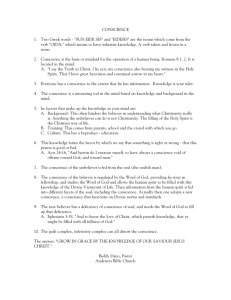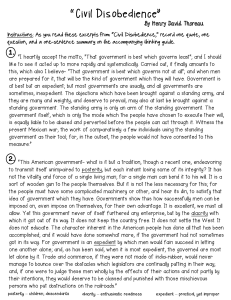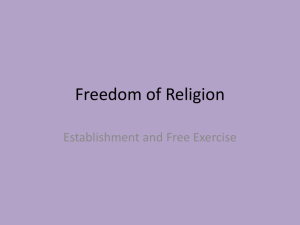Name: Date: 6B- _____ Reading: “The Tell
advertisement
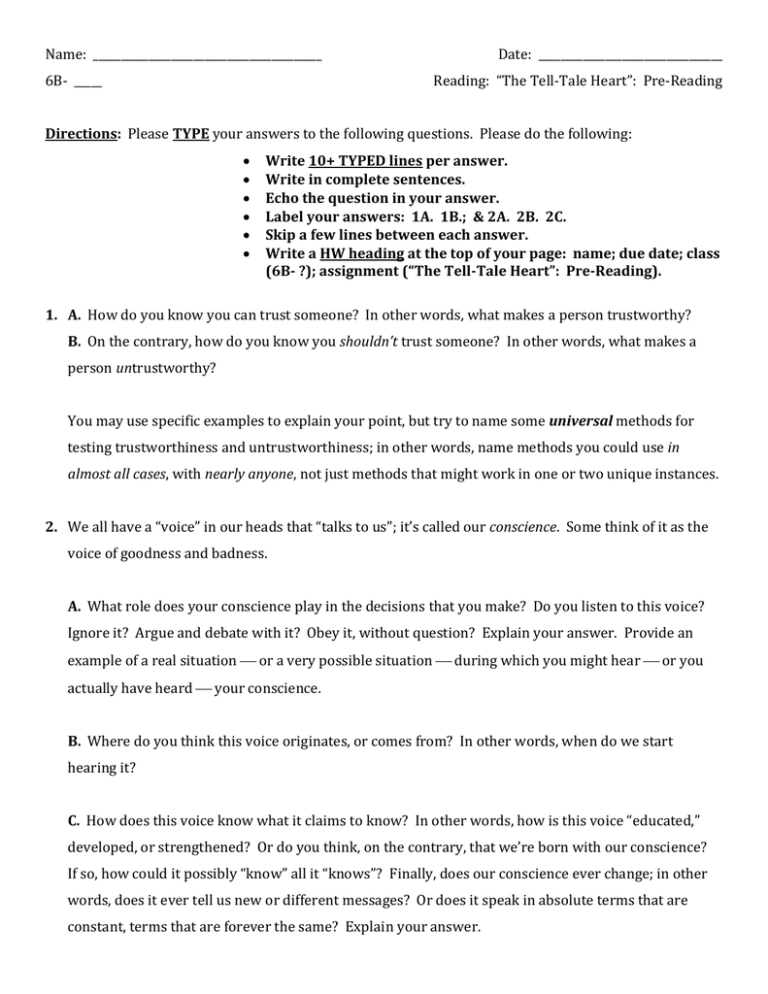
Name: _________________________________________ 6B- _____ Date: _________________________________ Reading: “The Tell-Tale Heart”: Pre-Reading Directions: Please TYPE your answers to the following questions. Please do the following: Write 10+ TYPED lines per answer. Write in complete sentences. Echo the question in your answer. Label your answers: 1A. 1B.; & 2A. 2B. 2C. Skip a few lines between each answer. Write a HW heading at the top of your page: name; due date; class (6B- ?); assignment (“The Tell-Tale Heart”: Pre-Reading). 1. A. How do you know you can trust someone? In other words, what makes a person trustworthy? B. On the contrary, how do you know you shouldn’t trust someone? In other words, what makes a person untrustworthy? You may use specific examples to explain your point, but try to name some universal methods for testing trustworthiness and untrustworthiness; in other words, name methods you could use in almost all cases, with nearly anyone, not just methods that might work in one or two unique instances. 2. We all have a “voice” in our heads that “talks to us”; it’s called our conscience. Some think of it as the voice of goodness and badness. A. What role does your conscience play in the decisions that you make? Do you listen to this voice? Ignore it? Argue and debate with it? Obey it, without question? Explain your answer. Provide an example of a real situation or a very possible situation during which you might hear or you actually have heard your conscience. B. Where do you think this voice originates, or comes from? In other words, when do we start hearing it? C. How does this voice know what it claims to know? In other words, how is this voice “educated,” developed, or strengthened? Or do you think, on the contrary, that we’re born with our conscience? If so, how could it possibly “know” all it “knows”? Finally, does our conscience ever change; in other words, does it ever tell us new or different messages? Or does it speak in absolute terms that are constant, terms that are forever the same? Explain your answer.

